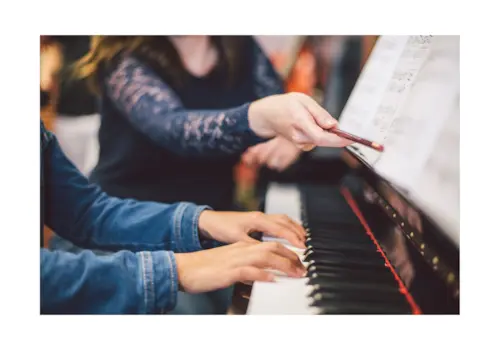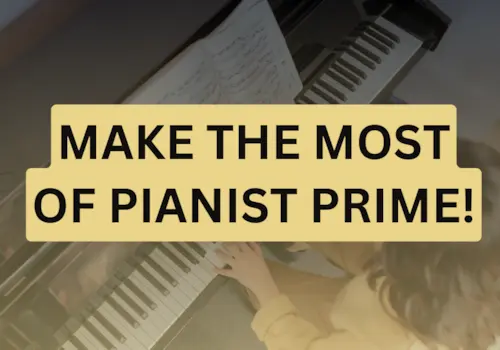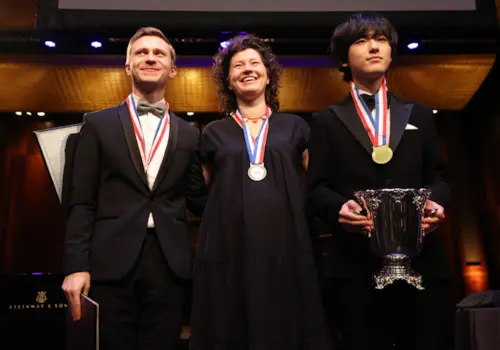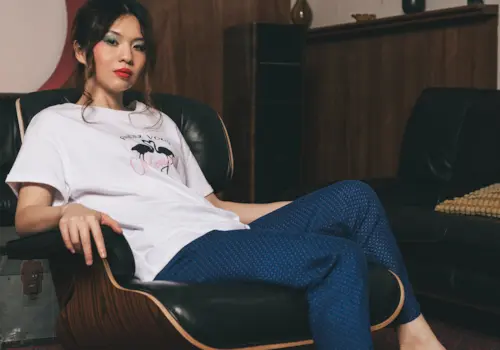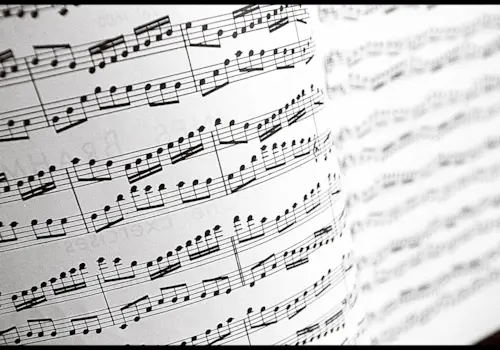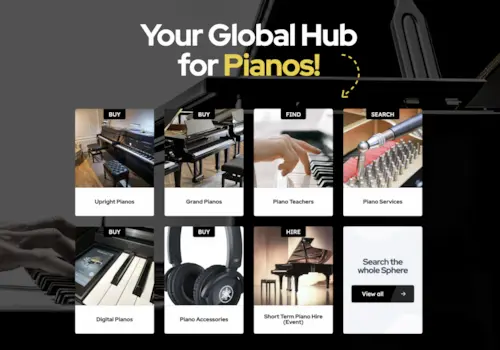This year marks our 20th birthday as a magazine, and so we wanted to flick back through the archives and pick out some of our favourite cover star interviews. In February 2021 the world sadly lost jazz pianist Chick Corea, who appeared on the cover of issue 81 of Pianist back in 2014. Inge Kjemtrup was the lucky interviewer back then. Read the full interview below
Main image: ©Andrew Elliot
by Inge Kjemtrup, 2014. This article is taken from issue 81 of Pianist.
You might think that once a performer achieves ‘legend’ status it might mean that the performer would never be able to do anything unexpected ever again. They’d just be playing their greatest hits endlessly. But if you’re Chick Corea, a certified legend of jazz, and you’ve played with everyone in every corner of the globe, and you’ve gathered truckloads of awards and five-star reviews, you don’t need to prove anything. You can focus on whatever interests you. All the nervous striving of youth is gone, and you can relax. Not that you can imagine Chick Corea as being anything other than relaxed.
This is a man, after all, who has played with such jazz greats as Miles Davies, Stanley Clark, John McLaughlin, Sarah Vaughan, Herbie Hancock and Gary Burton, and led several of his own bands, notably the influential Return to Forever. He’s greatly admired for his trio outings (his 1968 album Now He Sings, Now He Sobs is a landmark of the genre), while his solo albums are equally ground-breaking.
Several of his compositions, including the famous Spain, are jazz standards, while he has also delved into the classical world – on his own terms of course – playing Mozart concertos, and writing and performing his own concertos. Last year, at the famous Jazz at Lincoln Center in New York, he was honoured with an entire week of concerts.
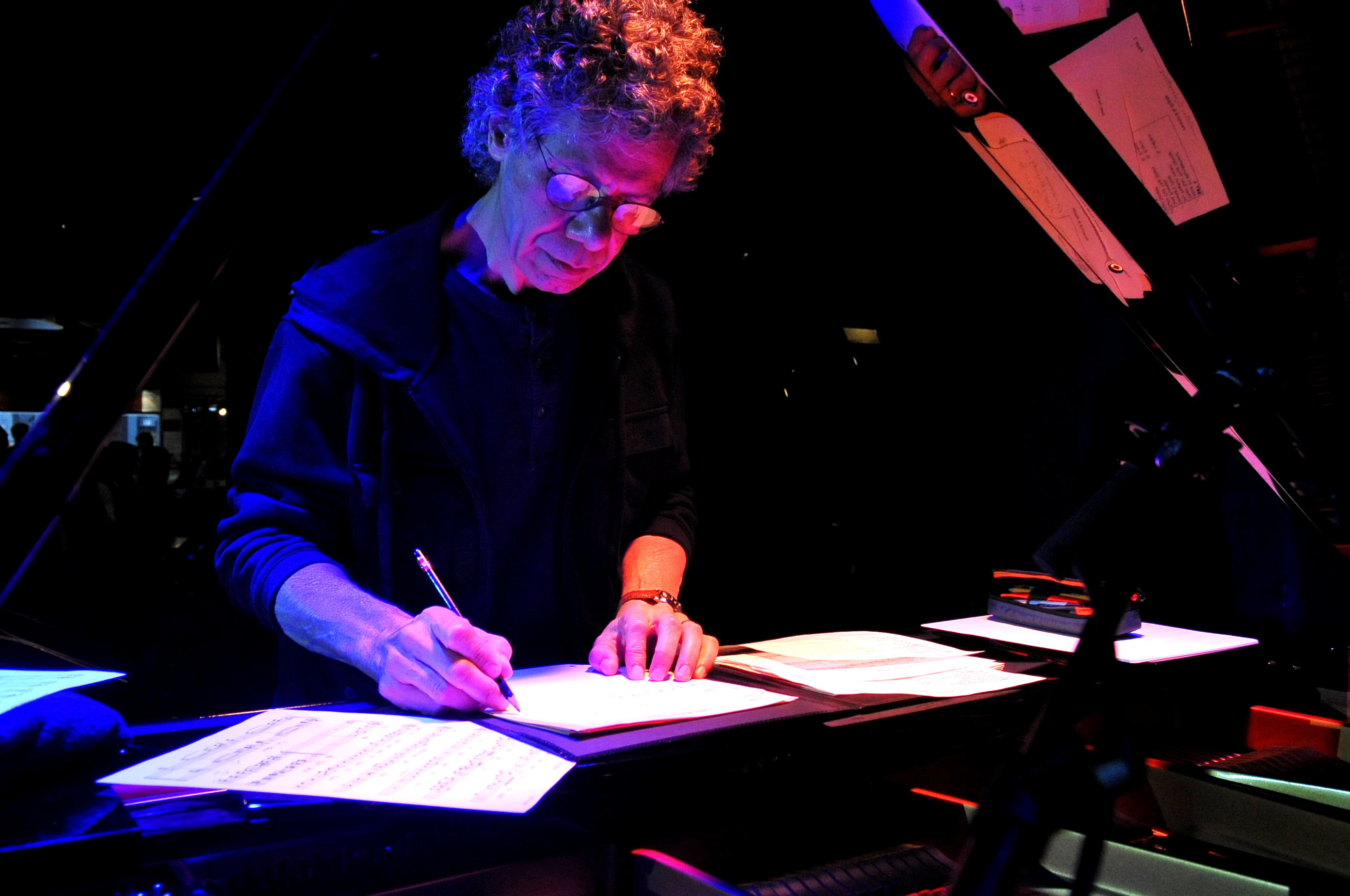
Chick Corea in action. ©Arne Rostad
On stage, the 73-year-old star seems as relaxed as he might be in his own living room, as I witness for myself at his solo concert at the Barbican Centre in London in May. He’s laid back in person as well, patiently answering my questions in a phone interview a few days before the concert. Chick Corea was born in Chelsea, Massachusetts, not far from Boston (the Boston accent is still evident in his speech). He was immersed in jazz from the beginning, so much so that he claims he didn’t actually come across any classical music until he was eight years old.
‘My dad was a trumpet player and had a dance swing band around the Boston area. He used to do radio shows and dances and weddings and that kind of thing. It was a pretty hot little band. It was jazzy.’
The young Chick started playing piano at age of four, under the tutelage of his father, who ‘showed me how to read music and showed me a lot of the basics’. His first formal teacher from the age of eight, was Salvatore Sullo, whom Corea describes as ‘an older Italian guy who would play piano concertos with the Boston Pops in the summer’. Sullo was as indifferent to the young Corea’s passion for jazz as Corea was to the Bach, Beethoven and Chopin he was assigned to play.
Luckily, teacher and pupil had other things in common. ‘When I would go to a lesson, he would demonstrate the song to me before he sat me down and I would get enthralled by watching his fingers and how easily they moved on the keyboard,’ Corea recalls. ‘He was a good example for me because he got a beautiful sound and played it without a lot of effort, very gracefully, and that was an image that I aspired to.’
In his own recent teaching efforts, Corea has referred back to his lessons with Sullo, creating his own ‘Mirror Images Piano Exercises’ based on what he learned long ago (you can find him talking about these exercises, and his lessons with Sullo, on YouTube).
Alongside developing his piano technique with Sullo, Corea was also listening to jazz players. ‘[My dad] had a wonderful 78rpm collection of recordings like Charlie Parker, Dizzy Gillespie and Billy Eckstein’s big band.’ The young Corea was also learning to play the drums (an important rhythmic grounding) and sometimes sat in on his father’s gigs on the drums or the piano. ‘And of course when you’re that small, you’re always the star of the show, so I got a lot of attention,’ he says.
Miles ahead
Once he graduated from high school in 1959, there was only one city he wanted to be in, and it wasn’t Boston. ‘There was lots going on in Boston, but there was ten times more going on in New York,’ he says. ‘That was my target and that’s where I went, because that’s where all my musical heroes went.’
After a brief flirtation with further musical education at Columbia University and the Juilliard School of Music, Corea began his career in earnest as a professional musician. He was a sideman for the likes of Blue Mitchell, Herbie Mann, Mongo Santamaria and Stan Getz, while beginning to develop his own style and his own groups. His first major record, Tones for Joan’s Bones, from 1968, saw him leading a band made up of trumpeter Woody Shaw, saxophone player Joe Farrell, bass Steve Swallow and drummer Joe Chambers.

Corea in 1976
He also made that significant trio recording, Now He Sings, Now He Sobs, but it was his time with the Miles Davis Band that brought him his wide recognition. Corea joined the Davis Band in 1968 when Herbie Hancock left, and played on several albums including In a Silent Way and Bitches Brew, and touring extensively. Like Hancock, who had recorded on a Fender Rhodes electric keyboard for 1968’s Miles in the Sky, Corea began experimenting with electric keyboards. This experimentation culminated in the Chick Corea Elektric Band of the 1980s and 1990s, when he was in full plugged-in mode with keyboards and synthesizers.
For Corea, digital and acoustic instruments are ‘absolutely totally different’. That’s not to say that he isn’t happy to operate in both worlds, as his own collection of instruments suggests. ‘I have a Bösendorfer Imperial in my studio that I purchased in 1981 that I love,’ he says. ‘I have a Yamaha CF3 with a Disklavier attachment that I also love. I’ve been playing Yamaha keyboards since the ’70s and I like them. Yamaha is always creative and always coming up with upgrades. In fact they have an upgrade of their concert grand piano called the CFX, which made a huge gigantic leap in quality as far as I’m concerned, and it’s become my favourite piano so I request it everywhere I go.'
Fusion forever

Chick Corea's band, 'Return to Forever', 1976. ©Tom Marcello Webster, New York, USA
Many listeners know Corea’s work from the years in between the Miles Davis Band and the Elektric Band, that is, his time as leader of Return to Forever.
The band began in 1971 with Corea on keyboards, joined by saxophone and flute player Joe Farrell, singer Flora Purim and bassist Stanley Clarke. The sound was ‘fusion’ – a convenient grab-all term for an excitingly hard-topin-down blend of jazz, Latin, rock and more. Corea’s best-known tune, Spain, came out of this era. Spain opens gently with Corea’s musings on Rodrigo’s guitar concerto, Concierto de Aranjuez, and explodes into a Latin Siesta that is a sheer expression of joy and energy.
Chick Corea performs 'Spain' live in Montreux 2004
Even while he was leading Return to Forever on its high-octane tours, Corea was looking to explore a more inward world, given his view of the piano as ‘a natural solo instrument’.
The logical next step was a solo album and for that, he turned to producer Manfred Eicher and his eclectic ECM label. The result was Piano Improvisations and Children’s Songs, among others. I ask Corea about the role solo piano has played in his career.
‘Through the years I’ve done at least a few solo piano concerts, because I like to assess my own musical output by myself without other musicians, just to see where my imagination might go and where my tendencies might be,’ he explains. ‘But this year is the longest piano solo tour I’ve ever done. I’m out on the road for a couple of months and I’m really enjoying practising the piano and being out in front of audiences on my own.’
At his Barbican Centre concert in May, Corea thrilled the audience by playing Spain. This was not a passive experience though, because he got the audience to sing along. He’s a brilliant communicator, keen to interact with his audiences, even while he keeps them on their toes – one latecomer trying to make her way to a front-row seat after the first tune got a swift comment from him: ‘There’s a good seat right there!’
Corea places himself in the long line of composer-pianists such as Duke Ellington, Bud Powell, Bill Evans and _ elonious Monk, a lineage rejected in his Barbican show, which included Ellington’s Sophisticated Lady, Evans’s Waltz for Debby and Monk’s Work. Like those artists, Corea is a great collaborator. A partnership with vibraphonist Gary Burton resulted in several albums from the trance-like Crystal Silence (1972) to Hot House (2013), which won him his 19th and 20th Grammy Awards, for best instrumental solo and best instrumental composition (for Mozart Goes Dancing).
Corea & Burton perform together on NPR Music's Tiny Desk Concert series
In recent decades, his collaborations have extended to the classical world – I can’t help but think that his old piano teacher would have been delighted by this. Corea had long been drawn to certain composers (Bartók, for one), but it wasn’t until concert pianist Friedrich Gulda dragged him into a public performance of Mozart’s concerto that his interest was really piqued. He’s since worked with Bobby McFerrin on two Mozart discs and composed large-scale works for piano and orchestra. Today Corea devotes a lot of his energies to a new generation of jazz players and has recently launched a series of online music workshops, ‘so musicians all over the planet can tune into the live broadcast,’ he says. ‘We did our first webcast from a studio near my home. It was like having a TV show without the usual strictures. I could go on as long as I want.’
I end my interview by asking Corea what he thinks of the future of jazz, and his answer is refreshingly simple: ‘The future of jazz and the world is in all our hands; it’s up to all of us to put some quality in our lives.’
Chick Corea, 1941-2021.
2021 marks 20 years of Pianist Magazine! Download our latest issue (122), our birthday issue, today.

